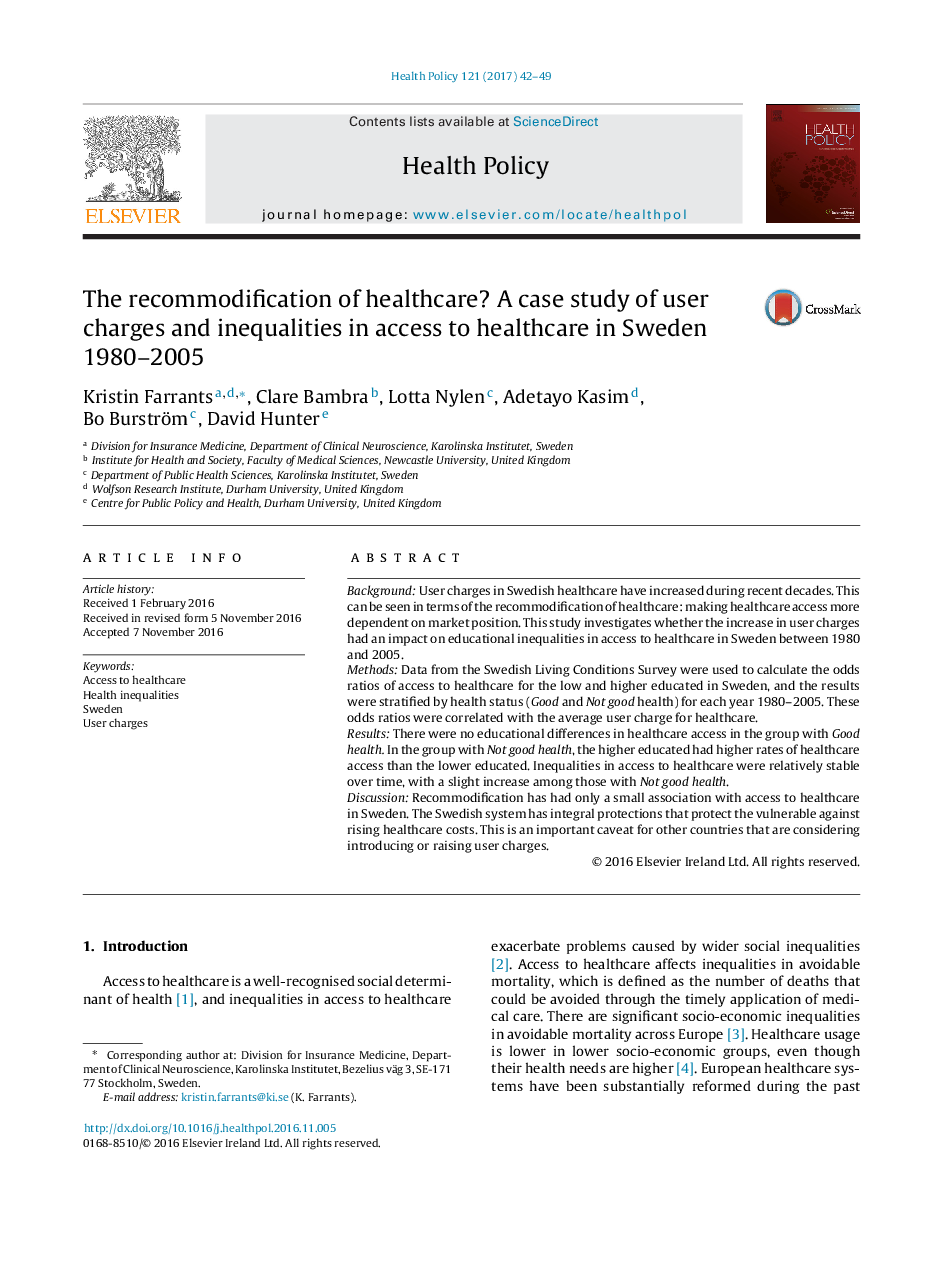| Article ID | Journal | Published Year | Pages | File Type |
|---|---|---|---|---|
| 5723338 | Health Policy | 2017 | 8 Pages |
â¢Inequalities in healthcare access are analysed in light of increasing user charges.â¢Inequalities in healthcare access exist in those with self-rated not good health.â¢These inequalities are relatively stable over time, despite increasing user charges.
BackgroundUser charges in Swedish healthcare have increased during recent decades. This can be seen in terms of the recommodification of healthcare: making healthcare access more dependent on market position. This study investigates whether the increase in user charges had an impact on educational inequalities in access to healthcare in Sweden between 1980 and 2005.MethodsData from the Swedish Living Conditions Survey were used to calculate the odds ratios of access to healthcare for the low and higher educated in Sweden, and the results were stratified by health status (Good and Not good health) for each year 1980-2005. These odds ratios were correlated with the average user charge for healthcare.ResultsThere were no educational differences in healthcare access in the group with Good health. In the group with Not good health, the higher educated had higher rates of healthcare access than the lower educated. Inequalities in access to healthcare were relatively stable over time, with a slight increase among those with Not good health.DiscussionRecommodification has had only a small association with access to healthcare in Sweden. The Swedish system has integral protections that protect the vulnerable against rising healthcare costs. This is an important caveat for other countries that are considering introducing or raising user charges.
